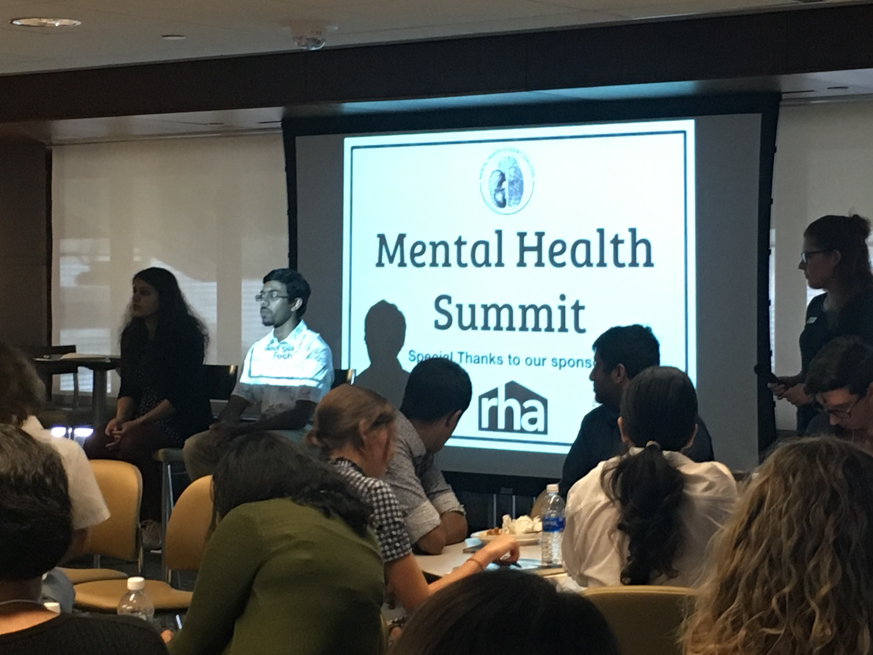For the third year, the Mental Health Student Coalition held their annual Mental Health Summit, this year themed “Daily Wellness.” The discussion at the conference-style event focused around the ways to improve the general well-being of Tech students and how to do so.
Emily Hale, third-year AE and executive director of the Mental Health Student Coalition (MHSC), spearheaded the organization of the event. She said that it has been in the works
since February.
“Last year our theme was suicide prevention,” Hale said. “That was a really great day and we got a lot of great conversations out of that. When we started looking at it in February, we wanted to make sure we were doing something different this year so that we can have some more conversations and get people thinking about different things.”
The Mental Health Summit, held on Saturday, Nov. 4, opened with remarks from Stacy Connell, the senior director of health initiatives. She spoke candidly about her own personal experiences and mental health struggles as well as why she finally decided to get help. This background is why she recently took up her job at Tech that deals with the wellbeing of each and every student.
“I love people,” Connell said. “I am a people person through and through, and I want to share with you all that we want everyone. Here at Georgia Tech, we don’t want people to fall through the cracks.”
In addition, she educated attendees about the various dimensions of wellness and how Tech’s existing services attempt to serve each need. She gave attendees a sneak preview of what is to come next from Stamps Health Initiatives, such as life skill development programs, expansion of online resources, peer health educator programs and increasing the utilization of pet therapy.
The next events of the morning were small breakout sessions, where participants formed groups and talked with different
on-campus experts on a variety of topics. Each 20-minute session prompted thoughtful discussion of concerns such as academics, sexual violence, diversity, housing communities and student
engagement.
Following these sessions was another presentation on “I Feel Safe When,” a campus-wide collaboration focused on issues surrounding feelings of
personal safety.
After receiving insight into the mental health challenges of those who occupy Tech’s campus, attendees were organized into teams and allowed time to come up with ideas for beneficial programs or initiatives in a session dubbed “brainswarming.” Afterwards, people were asked to share their thoughts with the room of around 100 people.
According to Hale, this portion of the summit has produced some actionable ideas in the past. A few years ago, plans for the KNIT mentorship program were discussed.
“Hopefully out of it will come some ideas that can be implemented on campus,” Hale said. “We’re lucky that we have a real variety of people who have come to be in this room today. We’re trying to take all those perspectives to create some new ideas.”
The summit drew to a close with remarks from Dr. Mack Bowers, the interim director of the Tech Counseling Center. Hale says that in future years, the MHSC hopes to accommodate even more individuals who want to learn how to better the mental health of themselves and their community.
